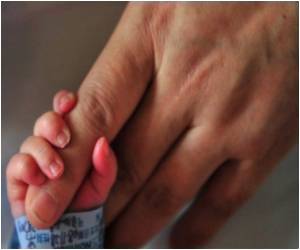A new study found autistic children have difficulty finding things such as shoes in a bedroom or apples at a supermarket, impairing their ability to lead normal lives.

"This new research indicates that children with autism are unable to search effectively for objects in real-life situations -- a skill that is essential for achieving independence in adulthood," they said in a statement.
The researchers told 40 children, half of whom were autistic, to search for targets in a test room in an experiment they said mirrored daily life better than previous tests that used computers or table-top tasks.
"Critically, these targets appeared more on one side of the room than the other," they said, which allowed them to test previous conclusions that autistic children are quicker to pick up on patterns in a system.
"A contemporary theory of autism (systematizing) states that these children are more sensitive to regularities within a system, (for example, prime numbers, computer programs and train timetables)," it said.
"Surprisingly, more 'systematic' behavior was not observed in this test; children with autism were less efficient and more chaotic in their search."
Advertisement
"The ability to work effectively and systematically in these kind of tasks mirrors everyday behaviors that allow us to function as independent adults," said Josie Briscoe, one of the authors of the report.
Advertisement
The study will appear in the US "Proceedings of the National Academy of Sciences" PNAS December 21-25 issue.
An estimated 1.5 million Americans suffer from autism, a disability that affects one's ability to communicate and interact with others and typically appears during the first three years of life.
Source-AFP








